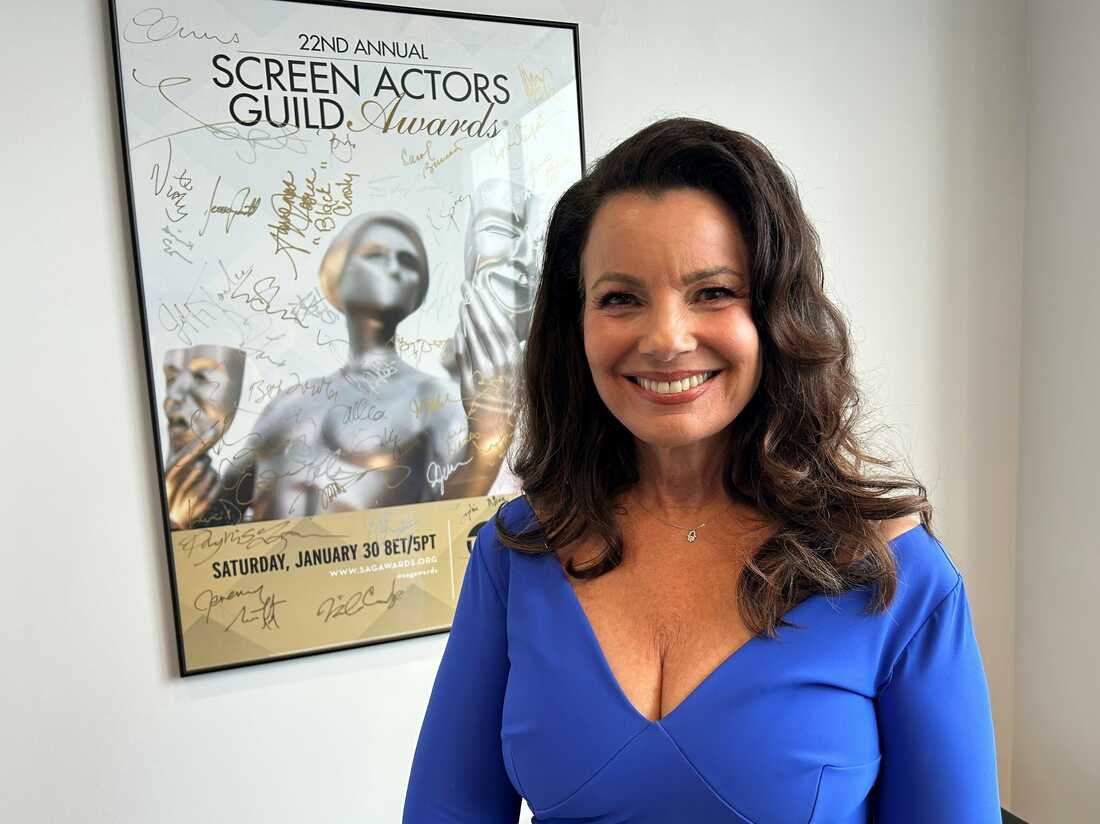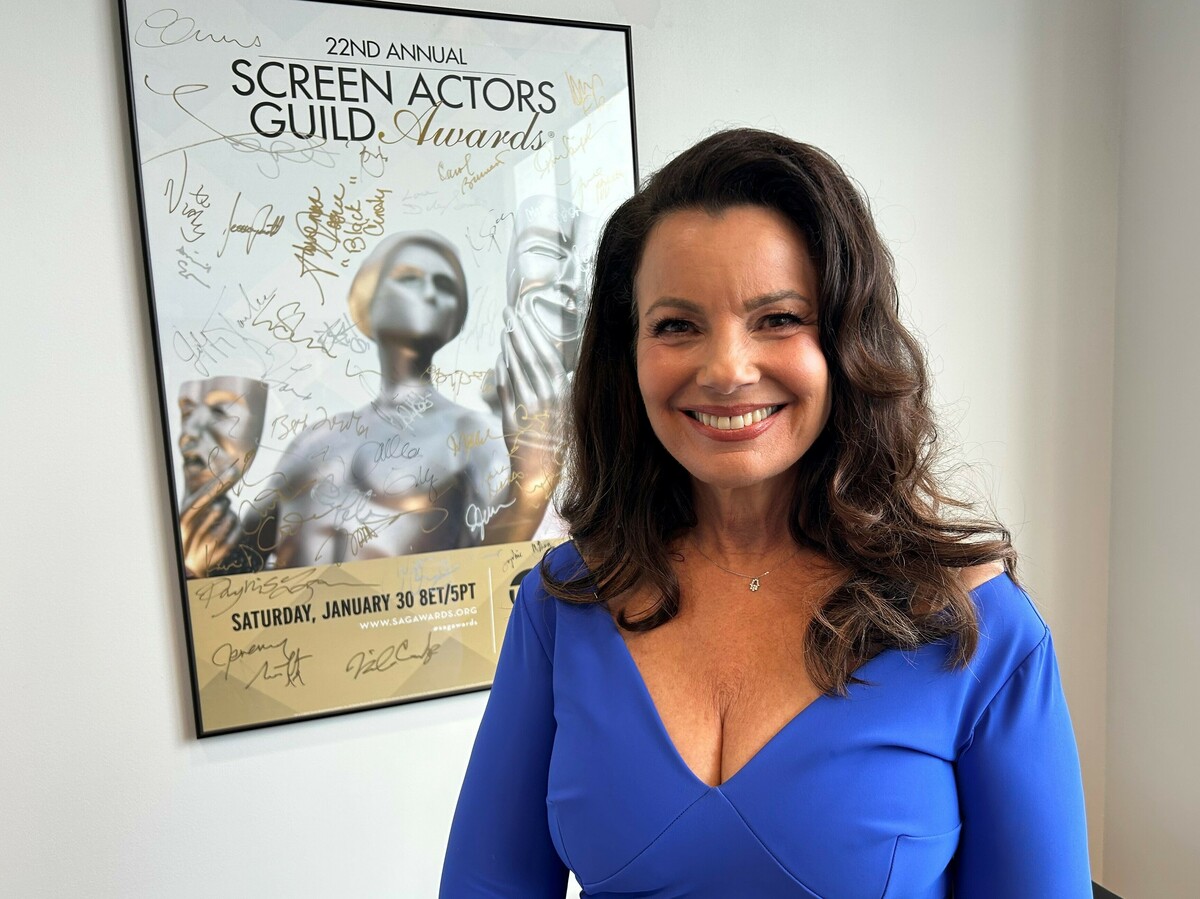
[ad_1]

SAG-AFTRA chief Fran Drescher.
Mandalit del Barco/NPR
conceal caption
toggle caption
Mandalit del Barco/NPR

SAG-AFTRA chief Fran Drescher.
Mandalit del Barco/NPR
The longest strike in historical past by actors towards movie and TV studios has lastly ended.
As of Thursday morning, actors are free to work once more now that their union — SAG-AFTRA — has a tentative deal in hand. It nonetheless must be ratified, but it surely consists of pay bumps, protections towards synthetic intelligence and streaming bonuses.
So far, studio heads haven’t responded to NPR’s request for interviews. In a statement, the Alliance of Motion Picture and Television Producers known as the tentative settlement “a new paradigm” and stated it “looks forward to the industry resuming the work of telling great stories.”
SAG-AFTRA president Fran Drescher spoke to All Things Considered host Ailsa Chang on Thursday in regards to the deal.
This interview has been frivolously edited for size and readability.
Ailsa Chang: I ought to be aware first that NPR News staffers are additionally members of SAG-AFTRA, however we’re beneath a special contract. We weren’t on strike. We’ve been working this entire time. Now you guys get to work as effectively. So inform me, Fran, after virtually 4 months of actors putting, what was the breakthrough that led to this deal, you suppose?
Fran Drescher: Well, we have been making strides all through the time that we have been on strike, besides, after all, from when the AMPTP determined they have been both going to stroll out or they themselves have been deliberating taking time earlier than they got here again with a counterproposal. So, you already know, the time was normally productive. And as soon as we actually received to a spot the place not solely did they actually absolutely grasp the concept that it is a new daybreak, that that is new management, that it is a historic time and this requires a seminal negotiation — then no matter it was that we have been speaking about, no matter it was we felt that we would have liked, they determined to place their pondering caps on and group collectively to provide you with their very own resolution model.
Chang: Let me discuss that new daybreak, as you refer. Do you suppose the protections for synthetic intelligence on this contract are broad sufficient to maintain up with this quickly-evolving expertise? Or do you suppose, Fran, you are going to must renegotiate this AI subject over again in three years when this contract is up?
Drescher: Well, I believe that it’ll be an ongoing dialogue and doubtlessly an ongoing battle, as a result of on the earth of AI, three months is equal to a 12 months. So we received no matter we thought we may presumably get to guard our members in the course of this contract. But we additionally requested that all of us meet collectively to simply take the heartbeat of the place expertise is twice a 12 months.
Chang: I believe the understanding is that you’d revisit the AI subject.
Drescher: We could be speaking about it as a result of we will have to return collectively on the identical facet for federal regulation and likewise to guard each of us from piracy. So, you already know, there’s a lot there that now we have to essentially begin working collectively on. And now there’s language within the contract to guard my members. And in three years, it could be an entire totally different scenario with new issues that must be unpacked and mentioned and argued and negotiated. And I believe it’ll be this manner for a really very long time. And that is OK.
Chang: Let’s discuss in regards to the streaming participation bonus. I imply, I do know that you just needed to push actually onerous to get the AMPTP to comply with this bonus, which mainly signifies that actors will now receives a commission extra if a present that is on a streaming platform is successful. But there are plenty of exhibits on streaming platforms that are not hits, proper? Like, Bloomberg discovered that fewer than 5% of unique packages on Netflix final 12 months could be thought of fashionable sufficient to end in efficiency bonuses. So what do you make of that?
Drescher: Well, really, the mechanism by which we decide the sum of money put into the fund is set by the exhibits that obtain 20% of the viewers, which is mainly a thimble dimension.
Chang: Right. You’re saying that if a selected present will get 20% of the platform’s subscribers to be an viewers that is thought of successful, after which a fund will get a few of the bonus, if you’ll.
Drescher: Yeah. Then the bonus cash will go into the fund primarily based off of that mechanism. And then a part of the bonus cash will go to the performers which might be really on these exhibits as a result of these exhibits would, you already know, be positively in syndication have been they’re on linear tv.
[adinserter block=”4″]
[ad_2]
Source link
